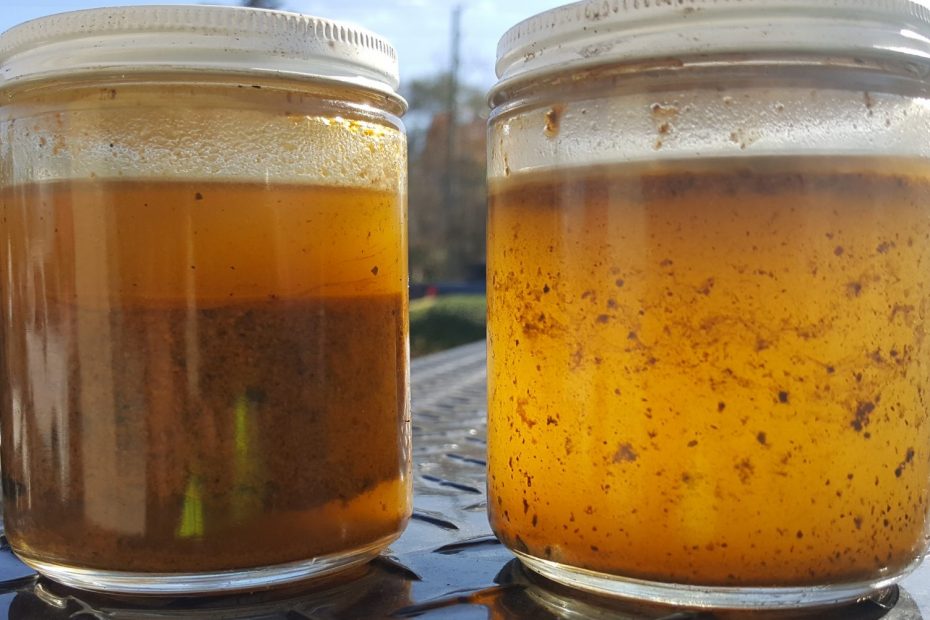Admittedly, fuel and fuel systems must be serviced in order to maintain fuel quality. A fuel quality management program that includes both system cleaning and the application of a quality fuel biocide is the secret to maintaining both fuel and equipment.
Tank cleaning and fuel polishing are two different processes. The question often asked, “Which one is better?” Are there any advantages to one over the other? Cost is the biggest factor. Tank cleaning is generally more expensive. It requires the removal of the fuel and can require manned entry into the tank system. Once the tank cleaning process is completed, the old contaminated fuel can be filtered back into the tank or new fuel dropped. Either way the costs are higher than fuel polishing. Fuel polishing involves the cycling of fuel through a filtration system multiple times to remove physical contaminants and water. While both have their advantages, neither are adequate methods for killing microbes. While some microbes might be removed with contaminants, many will remain to continue to create fuel quality issues.
The only way to kill microbial growth in a fuel system is to apply a biocide. Tank cleaning or fuel polishing alone will not do the job. Without a biocide application, cleaning leaves behind microbial contaminants that will continue to damage both the fuel and equipment. The question now, “What is the best biocide to use?” The answer, a proven dual phase biocide. Biobor®JF was the first fuel biocide, introduced in 1965. It has been proven successful in killing microbial growth since then. No matter what kind of fuel, Biobor®JF is designed to kill the microbes. It works in both the fuel and water phase, so if water is present, Biobor®JF works to kill microbes in both phases.
Once the system is cleaned and treated, periodic biocide treatments help to maintain the level of cleanliness. Fuel quality management includes the regular removal of free water and the use of a biocide. Biobor®JF is the original, industry standard biocide since 1965, used in the most critical application – aviation. Independently tested, EPA registered and OEM approved for use in all hydrocarbons. It does not adversely affect fuel chemistry and is more stable, less corrosive and safer to handle than other products. The Biobor® family of additives includes diesel fuel and gasoline products designed to remediate, stabilize, clean and enhance fuel. If you manage fuel and fuel systems, and are not using Biobor® additives as a way to reduce costs, downtime, liabilities and risk, contact us and learn how we can help. If you are using someone else’s products find out why you need to make the change to Biobor®. Join the Biobor®Revolution and be a part of the Biobor®Advantage.
Follow BioborShare the Post








